Thomas Michael Leonard
NOVEMBER 8, 1937 – FEBRUARY 15, 2023
Thomas Michael Leonard passed away in his home on Wednesday, 15 February 2023, surrounded by his six children. He was born in Elizabeth NJ. His passions included education, sports, travel, and family. He was a former president of the AGSS and organized our first international conference in Costa Rica in 1999.
Tom graduated from Thomas Jefferson High School (Elizabeth NJ), Mount Saint Mary’s College (Bachelor’s), Georgetown University (Master’s), and American University (PhD). He went on to teach at St Joseph’s College, University of North Florida (UNF), and elsewhere. He served as both the UNF History Department Chairman and the Founder/Director of the UNF International Studies Program. His recognitions include multiple prestigious Fulbright awards (1984/85/90), UNF Distinguished Professor Award (1985), and UNF Undergraduate Teaching Award (1991). His publications include 18 books, and contributions to numerous other books and papers. In 2008, he received the presidential medal for achievement from Mount Saint Mary’s University.
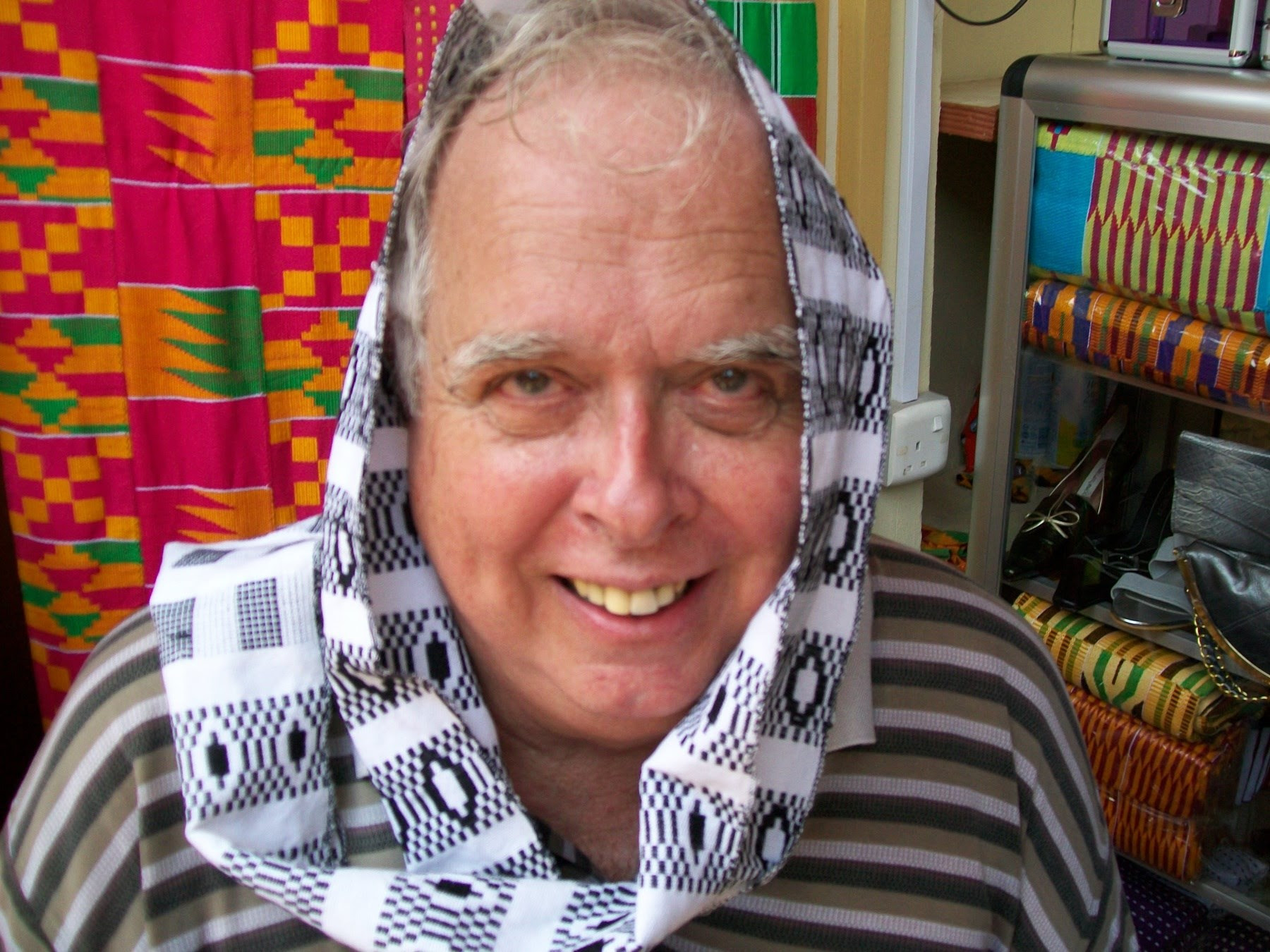 Tom also played basketball for Mount Saint Mary’s basketball team from 1955-1959, was an avid sports fan, and enjoyed coaching his sons in various sports. He traveled extensively for both work and pleasure, often taking his children or grandchildren. But most of all, he was a dedicated husband, father, grandfather, and great-grandfather.
Tom also played basketball for Mount Saint Mary’s basketball team from 1955-1959, was an avid sports fan, and enjoyed coaching his sons in various sports. He traveled extensively for both work and pleasure, often taking his children or grandchildren. But most of all, he was a dedicated husband, father, grandfather, and great-grandfather.
Tom was predeceased by his wife (Yvonne Ann Marie Leonard) of 46 years, who passed away from ALS complications in 2006. He is survived by his children Tom Jr (Laurrie), Bob (Donna), Randy (Susie), Eddie (Kara), David (Stephanie), and Stacy (Scott). He was also blessed with 16 grandchildren and 5 great-grandchildren.
Funeral Services will be held at Marywood Retreat in St John’s FL on 14 April 2023 at 10 AM, and at Saint Anthony’s Church in Emmitsburg MD on a date to be determined. Tom and his wife Yvonne will both be buried together at the Mount St. Mary’s Cemetery located at the National Shrine Grotto of Lourdes, Emmitsburg, MD.
-
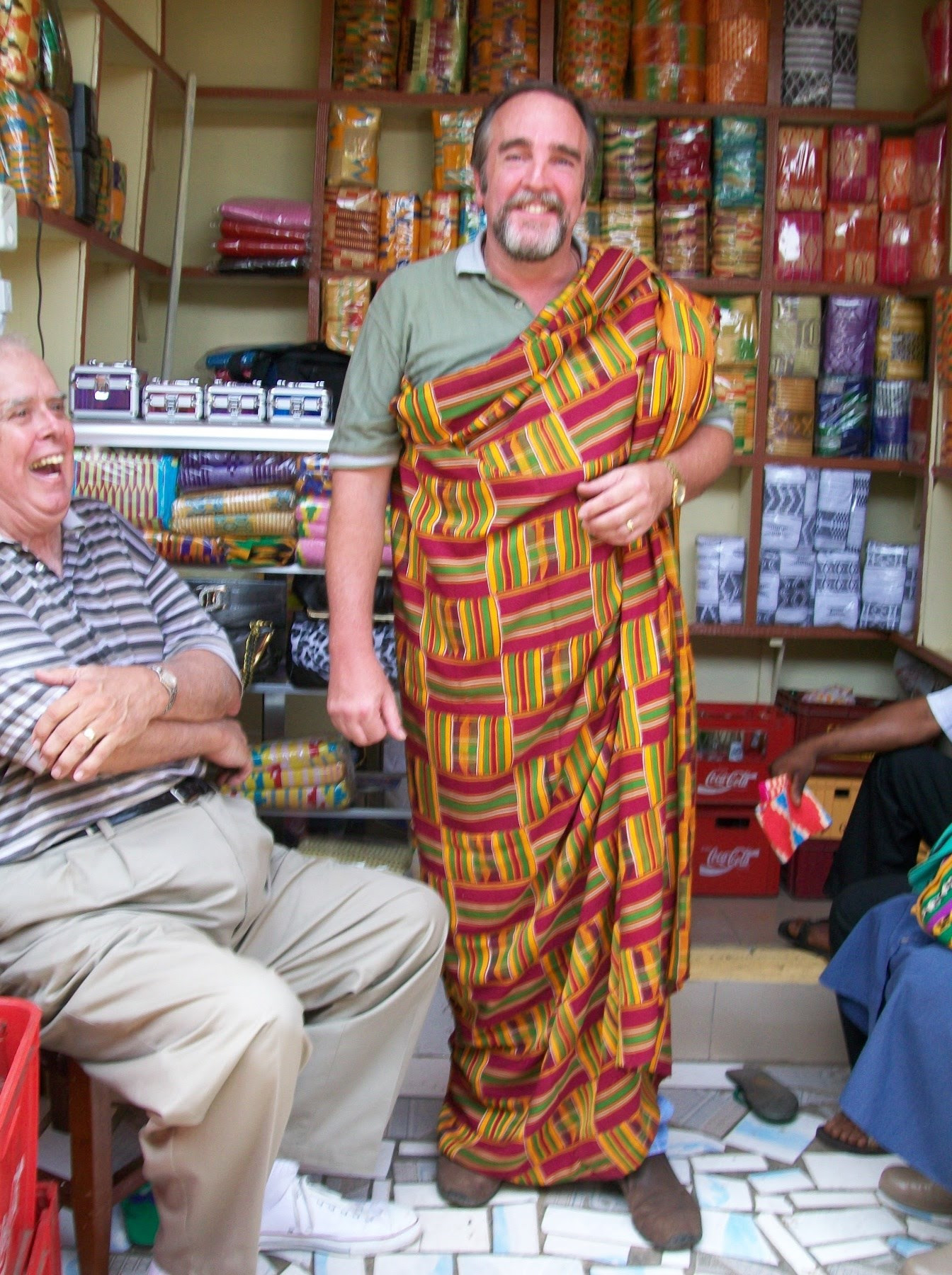
Michael Hall
Colleague 03/15/2023
I have so many awesome memories of Tom interwoven into my academic life over the last twenty-five years. In 1999, Tom invited me to UNF to give a lecture on the 1973 coup in Chile. After the lecture, Yvonne made a wonderful ham at home. In 2005, Tom and Yvonne and I made a special day trip to see Trujillo’s House of Mahogany mountain retreat while we were attending the ATWS conference in the Dominican Republic. Que descanse en paz.
Not that he would always admit it, but Tom was always laughing with you and not at you [although sometimes the rest of us did not know we should be laughing]. In 2009, after the ATWS conference in Ghana, Tom and I took a week to explore the country. During our adventures in Kumasi, we spent an afternoon in the central market. After trying on a traditional kente cloth toga, I asked Tom if I looked like Akan royalty. The lady who owned the shop insisted that Tom wear a headscarf [a gift if I was willing to purchase the toga].
Passing of Key Founding Member: Zia Hasan Hashmi
On the morning of Tuesday, March 9, 2021, Zia H. Hashmi died of a probable heart attack, at age 87. Zia and his wife Tanveer were living with their daughter, Dr. Saira and her husband Dr. Mahboob Alikhan in Merritt Island, Florida.
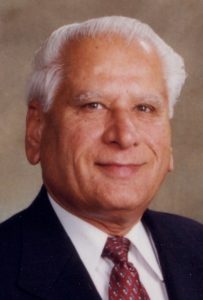
Zia was born in Warangal, Hyderabad State in the former British India. He was educated at Osmania University, BA, and Aligarh University MA and LLB, where he received many academic honors. He then briefly taught political science at the University of Karachi, Pakistan. He came to the United States in 1964 to earn a doctorate in international relations at the University of South Carolina where he was their first PhD graduate. Upon graduation he was hired by the Department of Political Science, Georgia Southern University in 1968 in part to create an international studies program for the growing university. That program grew under Zia’s guidance thanks in part to six faculty development grants from the Department of Education’s Title VI Program. He also developed two degree programs, a BA in International Studies and a BS in International Trade, in addition to several interdisciplinary minors and concentrations.
In the early 1970s, Zia and Political Science Department Chair Lane Van Tassell began a model UN program that became one of the largest and strongest in the Southeast. Thanks also to Zia’s connection with the University of South Carolina’s International Studies program and its director Dr. Donald Puchala, the two universities engaged in a lengthy series of Joint Faculty Seminars every semester and Georgia Southern hired some of South Carolina’s graduates including Sudha Ratan, Darin Van Tassel and Deborah Sabia who also became members of the Association of Global South Studies (AGSS), then known as the Association of Third World Studies (ATWS).
Shortly after Zia arrived in Statesboro, he received a phone call from Harold Isaacs at Georgia Southwestern State College (now University). Isaacs invited him to Americus, GA to give a talk in his Third World Forum series and the two exchanged ideas before and after the lecture. At that time, Isaacs was in the early stages of creating ATWS and he was looking for collaborators. From that time forward, the two worked together closely. It was Harold and Zia along with another early member Bill Head who wrote the organization’s constitution. They joked that they were the founding fathers with Harold being the ATWS George Washington, Bill as the James Madison equivalent and Zia as the John Adams (with a touch of Thomas Jefferson thanks to Zia’s scholarly approach to the drafting of the document).
With the founding of ATWS, Harold began his long term as journal editor plus the new organization’s treasurer, meanwhile Zia became its first president and when this term ended he became the first ATWS Executive Secretary. Thanks to this appointment ATWS had a home in Georgia Southern’s international studies office with a budget plus secretarial support. This support continued under Paul Rodell who followed Zia as Executive Director for two six-year terms. Also before his three-year term as executive director was over, Zia began the process of petitioning the United Nations ECOSOC to accept ATWS into its observer status. This position was later filled by Lauren Eastwood who continues to serve as the AGSS representative.
In 2000 Zia retired, ending his lengthy academic career. As Zia remarked at his retirement party, he promised Tanveer that when he retired he would devote himself to her as completely as she had devoted herself to him and their children. He kept that promise. The Hashmi’s sold their home in Statesboro and moved to Richmond, VA to stay with their daughter Dr. Ghazala and her husband Dr. Azhar Rafiq. Interestingly, in 2018 Ghazala was a part of the “Blue Wave” that swept the Democratic Party into power in that state. The new legislator became the first Muslim member of the Virginia State Senate. Meanwhile, Zia and Tanveer’s son Sohail is following in his father’s footsteps and is on the faculty at Mount Holyoke College, Massachusetts where he is Professor and Chair of the program in International Relations. The Hashmi’s also have five grandchildren, Yasmin, Noor, Manar, Firas, and Sofia.
By Paul A. Rodell – with assistance from Sohail Hashmi and Lane Van Tassell
______________________________________________________________(2020)
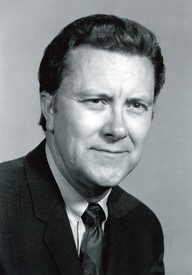
Garth N. Jones (1925-2020) Life member Garth Jones was raised by a single mother during some of the worst days of Great Depression in Salt Lake City. She and her two children often had to sleep on used newspapers in the attics of houses where she worked as a cleaning maid. Hunger was a constant for the young boy. Thanks to a $100 scholarship from the retail store Sears and Roebuck, Jones went to an agricultural college that is nowadays Utah State University. In 1954, he earned a Ph.D. in Business Administration from the University of Utah.
Jones was in academia for sixty years teaching at a wide variety of schools in the US and abroad. He taught at Brigham Young University, the University of Southern California, and Colorado State University. He also a senior scholar at the East-West Center in Honolulu. His final school was the University of Alaska, Anchorage where in 1974 he founded their College of Business and Public Policy. After serving as its first dean, in 1980 he returned to teaching and retired in 1987. His overseas teaching experiences included faculty positions at Gadja Mada University in Jogjakarta, Indonesia, the University of Punjab in Lahore, Pakistan, and Chen Chi University in Taipei, Taiwan.
Jones was a prolific scholar and published over 200 articles and books covering topics in public policy and comparative administration frequently with a focus on Pakistan and Indonesia. He published some articles and numerous book reviews in the JTWS and was a friend to many in the earliest years of the Association.
Paul Rodell (from numerous University of Alaska and funeral home obituaries)
______________________________________________________________(2015)
Passing of Key Founding Member: Harold Isaacs
Harold Isaacs – Founder of Our Association
Harold “Harry” Isaacs, founder of our association and of our journal, was born in Newark, New Jersey on December 19, 1936 to father, Albert Lewis Isaacs, and mother, Bertha Wohl Isaacs. Soon thereafter they settled in West Orange, New Jersey where Harry was an active youth, playing basketball, baseball, and football. He had a lifelong passion for sports and was an avid golfer in later life, playing a round with his dear friend Bill Head just a couple of months before he passed away in Americus, Georgia on July 10, 2015. He had been diagnosed with pancreatic cancer in November 2014.
Young Harry would find himself lured to the University of Alabama-Tuscaloosa where he earned a B.S. in history in 1958 and an M.A. in history in 1960. He taught at the University of Memphis for three years (1962-65) before taking a position at Georgia Southwestern (then a state college, now a state university) in Americus, Georgia in the fall of 1965. He would take his Ph.D. in History – also from the University of Alabama – while teaching courses focused on African American and Latin American history. His dissertation was entitled “United State Mexican Relations During the Gonzalez Administration, 1880-1884.”
Dr. Isaacs would go on to teach every semester and every summer at Georgia Southwestern (GSW) until his retirement at the end of spring semester 2005. Thereafter he would teach a course per semester for the next nine and a half years until his demise, for a total of forty-nine and a half years of teaching at GSW. He loved students and teaching, and he was a very popular teacher and a beloved colleague. One of his former students introduced him to her mother, Doris Caroline Mack, originally from South Carolina, and Harry would end up marrying her on April 25, 1974. Doris was a dear lady and our association’s founding mother. Harry and Doris would be steadfast partners, with Harry patiently caring for her until she passed away from Alzheimer’s on January 31, 2011.
Additionally, Harry was a scholar and advocate for the study of neglected peoples of the world in Asia, Africa, and Latin America. He saw that the fate of these peoples was intertwined with our own, but that there had been little attention devoted to them academically and otherwise. Consequently, in 1981 he initiated a Third World in Perspective program series at GSW to promote campus and community-wide awareness and understanding of different cultures. It is a program that continues to this day. In 1983 Harry followed this up by incorporating the Association of Third World Studies (ATWS), which was renamed the Association of Global South Studies (AGSS) in the spring of 2016. And he commenced publication of the Journal of Third World Studies (JTWS) a year later. He would serve as editor in chief of the journal until his death in 2015. In the early days, Harry served as secretary, treasurer, and the heart of the association. He was a quiet dynamo who by virtue of his passion and his temperament, attracted supporters to his cause. Harry would be the first to demand that others who contributed to the establishment of this association be properly recognized and credited.
This list will necessarily be incomplete, and I beg forgiveness from those not mentioned who deserve credit, and from Harry for not listing everyone by name as he would wish. Bill Head wrote the association constitution and lent early support, making him a co-founder. Zia Hashmi, John Mbaku, Paul Rodell, Nancy Shumaker, Tom Leonard, A.B. Assensoh, Dorothea Martin Hoffman, Steve Rhee, Lauren Eastwood, Ross Chambliss, Peyi Soyinka Airewele, Michael Hall, Rolin Mainnudin, Bill Pederson, Chaitram Singh, Paul Magnarella, Abdul Karim Bangura, Cecile Currey, Doyin Coker-Kolo, Toyin Falola, Marcia Jones, Julius Ihonvbere, Bob Curry, Samuel Zalanga, Kathy Zak, Peter Dumbuya, Patrice McSherry, and many, many others offered tangible and substantial support for the association in its early years. Many of these members continue to serve actively to sustain the association that Harry wanted to thrive into the future.
From a small southern college in a small town in the deep South, Dr. Harold Isaacs forged an enduring, internationally respected association and journal. That was no small feat. It is a valuable legacy that remains relevant. However, I want to conclude with a more personal note on our friend and mentor Harry Isaacs: he was a kind man with a heart of gold, a wonderful and supportive friend, a person of sterling character and integrity. I wish every member and future member of our fine association could have known our founding father. Hopefully, his spirit will endure through our continuing efforts to spread knowledge and understanding.
Gary Kline
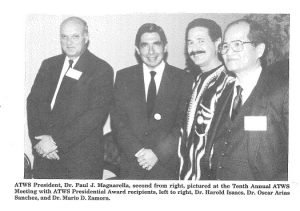
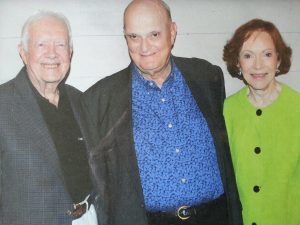
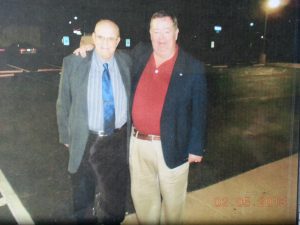
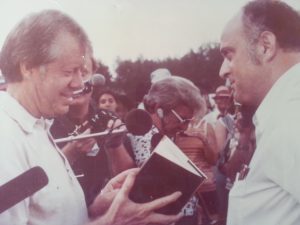
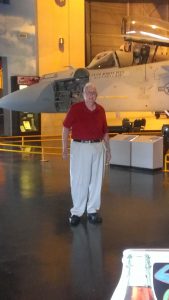
______________________________________________________________(2013)
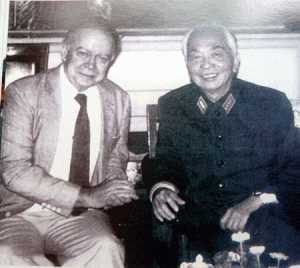
Dr. Cecil B. Currey, Col. ret., USA (1932-2013)
When you lose someone like Cecil it seems like words are so useless. We all know that he was a prolific writer, a renowned historian, beloved husband and father as well as a devoted colonel in the Army Chaplain’s service. You can read all about what he did in his obituary and his biography. However, none of that tells you who he was and all of the meaningful things he did for other people. In this world people tend to glorify professional achievement and monetary wealth; especially the latter. Even those who claim to believe in spiritual growth and humanity frequently revel in their promotions and the expansion of our resumes and overseas bank accounts. That was never something my friend and mentor Cecil did! He gained great satisfaction from traveling to meet people who had affected the history of mankind or in the progress and learning of his students—even if it meant one of them going from near illiteracy to making a C in History 101. To that end, he interviewed and wrote about world leaders like Vo Nguyen Giap. He also kept dozens of special reports, essays and papers students wrote in the myriad of classes he taught. Dr. Currey reveled in learning about something new, including a new kind of beer or ale, or meeting someone who challenged his intellect. He was in every sense a scholar and a gentleman!
I first met Cecil when we were both on a panel together. I frankly can’t remember what my paper was on, nor do I recall what the conference was for. I think it was something to do with Asia. I know it was a panel on Vietnam and the U.S. involvement in that conflict. Having never previously heard of “Col. Currey” I made the mistake of “assuming” my paper might lean a little too left for a military type. When he showed up I became even more fixed in my prejudice since he was wearing his uniform and was roughly 15 years older. Worse still he was the discussant! I feared he’d rip my paper to shreds. As those who know Cecil will guess, he did no such thing. Instead, he was fair and measured. In fact, he gave me several great compliments remarking that he had learned a great deal from my presentation. WOW! Afterwards we spoke at length about his time in Southeast Asia and in the Army. We soon became close friends. I even got to visit him at his home in Lutz, Florida. He had so many great and often humorous stories, none of which he ever embellished. He did not have to. Truth is often more remarkable than fiction.
Over the next several years, Cecil and I began to find reasons to attend the same meetings and spent many hours in discussion. Of course, he eventually began to attend regularly ATWS meetings. It was during one of these conferences that, while buying a round in the hotel longue, we discussed the idea of providing money to fund an annual book award for ATWS. It was at a time when ATWS was in need of more funds and so, over round two, we conceived of how this all might come about. Naturally, the financial genius in ATWS has always been Harold Isaacs and eventually he and Cecil worked out the details of what later became known as the ATWS Cecil Currey Book Award. Due to his funding, today, it carries a generous cash award.
In recent years, we have seen less of each other due to his declining health. I knew he was having surgery in the fall but had not heard the results. Like the rest of you I was shocked to hear from his daughter that he had passed away. It truly brought tears to my eyes. However, as I considered the situation I realized that he was a very lucky man to have led such a full and consequential life. On a personal level, he made me a better and more thoughtful historian and, of greater significance, a better person. I think all of us who knew him can agree with that. As ATWS continues to grow and become more important in the education of students and scholars in this field of study, Cecil’s gifts, both financial and spiritual, will continue to sustain all of our members and inspire them to great achievements—professionally and compassionately. As long as there is a piece of ATWS with his name on it we should remember why that is so. To be sure, the Currey award should always be meaningful to all who win it, or have won it, and to all the members of ATWS.
If Cecil were here right now he’d tell me not to worry that he has only gone to scout things out and see what the next great adventure holds for us all. He’d remind me that this life only last for a fleeting moment and that we only continue in the lives of all those who we have touched in a positive way as we go on this journey. That is a good lesson for us all! As he used to say: “God Bless and Keep You Now and Always.” The same to you my friend and colleague!
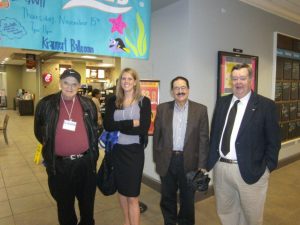
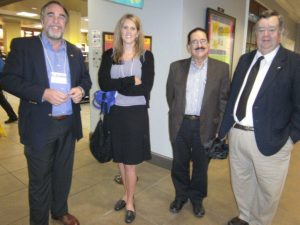
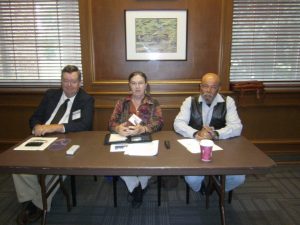
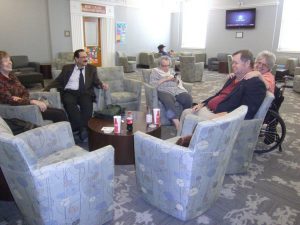

Bill Head
______________________________________________________________(2012)
Dr. Steve Rhee
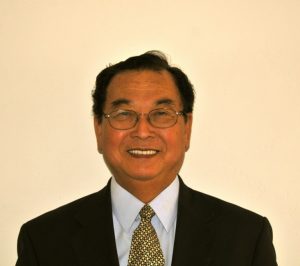 Early Pioneer Member and Leader
Early Pioneer Member and Leader
Dr. Steve Rhee, Professor Emeritus of Political Science at Armstrong Atlantic State University, died April 26, 2012 from cancer, with his family by his side at his home in Oceanside, California. Dr. Rhee was an early member of the ATWS (AGSS), a past president of the organization, and the organization’s 2002 Presidential Award Winner. He brought the organization’s annual meetings to Savannah, GA in both 1988, and again in 2001. Dr. Rhee was an expert on Far East Asian affairs. He helped develop Asian studies programs at AASU by bringing authorities around the world to Savannah, Ga. He was known to be a gentle professor and mentor, who encouraged and supported both students and colleagues. He was recognized by Armstrong State University with The H. Dean Propst Teacher of the Year Award in 1991. Later in life, he served as a regular columnist in several journals, and as a translator, honing his fluency in Japanese, Korean, French, and English.
Dr. Rhee was born in Seoul, Korea on February 17, 1935 and as a student at Korea University, he decided to head to the United States to further his studies at the University of Oregon where he received both his BA and MA in Political Science in 1962 and 1964, respectively. He obtained his Ph.D. in Political Science in 1973 from the University of Missouri, Columbia. He retired in 2003 after 30 years of teaching at Armstrong.
After retirement, he moved to Oceanside, California in 2007 to be closer to family. He is survived by his wife Sarah Rhee; a son, Dr. Eugene Rhee, a physician, and daughter, Dr. Sonia Rhee, a pharmacist, both from San Diego, California.
Ned Rinalducci
Robert Lawless
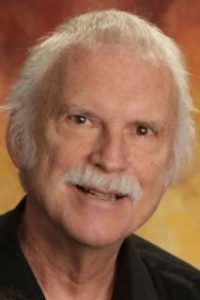
Robert Lawless Professor of Anthropology, Wichita State University, passed away on February 2, 2012 of heart failure at HCA Wesley Medical Center, Wichita, Kansas. He had been battling heart disease for roughly seven years. Robert was born in Tulsa and grew up in Sand Springs, Oklahoma. He earned graduated from Northwestern University in 1959. After service in the military he taught English at the Brent School in Baguio, Mountain Province, Philippines. His interest in the country led him to a master’s degree program in Asian Studies in 1968 from the University of the Philippines, Manila. He returned to the US to earn a Ph.D. in Anthropology from the New School for Social Research in New York in 1975. For his dissertation he wrote on the Kalinga indigenous group of Mountain Province. He also worked with urban scavengers in manila and peasants in the Central Luzon region north of Manila. In addition to the Philippines, Lawless worked in East Timor, Indonesia and did field work in Haiti. From 1978 to 1992 he was a member of the Anthropology and African Studies faculty at the University of Florida. In 1992 he joined the Anthropology Department at Wichita State University in Kansas and was department chair from 1996-1999. Robert amassed a record of scholarship, including several recognized books and articles in international journals. He served in various roles in professional organizations including the association of Philippine Anthropologists and The Association of Third World Studies. He was directly involved in the drafting of position papers for the Aristide Government in preparation for the restoration of representative government in Haiti.
(Information for this memorial from an obituary written by his wife Anita Raghavan https://crankylinguist.blogspot.com/2012/03/robert-lawless-mentor-and-friend.html)
______________________________________________________________(2011)
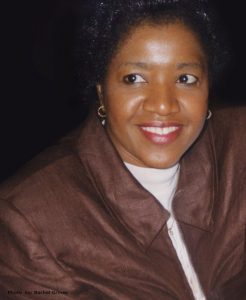
Marcia White Jones (1959-2011) Marcia was born in Castries, St. Lucia, West Indies. Marcia earned her BS degree in Economics from the University of West Indies at Cave Hill, Barbados, West Indies in 1980. She then received MS (1983) and Ph.D. (1986) degrees in Agricultural Economics from the University of Illinois at Urbana. After graduating she joined the School of Economic Development at Georgia Southern University rising from Assistant to full Professor. Marcia also held leadership positions at GSU including Director of the Affirmative Action Office (2000-2003) and Associate Vice President for Institutional Compliance (2003-2007).
While at Georgia Southern Marcia was an active ATWS member for a time she edited the Association’s newsletter and co-edited (with Nancy Schumacher) three conference proceedings. In 1997 Marcia became the Association’s Vice-President/President elect and organized the annual conference in Hartford, CT.
In 2008, Marcia resigned from Georgia Southern and relocating to Watkinsville, GA to be with her husband Luther. At the same time, Marcia was employed at the University of Georgia as a Public Service Associate with the Center for Agribusiness and Economic Development. She is survived by her husband, Luther; two sons, Jeremy and Ian; and five siblings Andrina, Sandra and Ulric of St. Lucia, Carol of Barbados, and Earl of Brooklyn.
As for the Marcia we all knew, her friend Paula Bragg said it best, “She hugely impacted my life as well as lives everywhere! No matter who we were around or what we were doing, she always amazed me (and others) as we watched her deal with everything from racism to homelessness. She effortlessly turned negative situations into positive. She was my hero.”
Paul Rodell
______________________________________________________________(2009)
Dr. Jeffrey Michael Elliot 1947-2009
Dr. Jeffrey Michael Elliot, Chair and Professor, Department of Political Science, North
Carolina Central University, and a former member of ATWS, passed away on Saturday,
December 12, 2009. Dr. Elliot was a fine and respected teacher and scholar who published
numerous books and articles over his lengthy career. He interviewed numerous Third World
political leaders, to include Fidel Castro, Michael Manley, former Prime Minister of Jamaica,
and Nobel Prize Winner Desmond Tutu. All ATWS members extend their condolences to friends
and colleagues of Dr. Elliot.
* Association of Third World Studies, Newsletter, Spring 2011
______________________________________________________________(2005)
Dr. Isaiah Azariah 1929 – 2005
The passing of Dr. Isaiah Azariah is a great loss to humanity. Dr. Azariah was a great teacher, scholar, and humanitarian. He dedicated his entire life to helping others,whether it was guiding his students at Albany State University, providing leadership in the South Asia Chapter of the Association of Third World Studies (ATWS), or serving as Director of the Centre for the Rehabilitation of the Disabled in Kerala, India.
I knew Dr. Azariah best in my capacity as the founder of the ATWS. Dr. Azariah was a member while he resided in the United States,and was the founder of the South Asia Chapter which he established in the early 1990s. It was due to Dr. Azariah’s great organizational and personal skills that this important academic entity has flourished throughout its history. Dr. Azariah, who was the author of several books and a Fulbright scholar and Paul Harris Fellow, worked for over a year in drawing up the appropriate legal documents which were necessary to obtain approval for the chapter from the government of India. He gave shape and form to what would become ATWS’ most successful chapter.Dr. Azariah successfully enrolled other academic and professional leaders in his work, and he always made certain others, not himself, received credit for the success of the chapter. The highlight of his and other’s efforts were superlative two day conferences organized yearly around a theme that had practical meaning in India and elsewhere. I know he is proud that the Tenth Annual Meeting of the South Asia Chapter will be held from May 14-16, 2005 in the Jubilee Memorial Animation Centre, Vellayambalam, Trivandrum, India.
I was fortunate to know the scholar and academician but I also was familar with the personal and humanitarian sides of Dr. Azariah. I knew my friend to be a gentle, humble, good man who cared for others and dedicated his life to helping the affirmed, especially children afflicted with polio and cerebral palsy. When he retired from twenty-five years of teaching at Albany State he could have easily assumed a relaxing life in retirement. But this was not Dr. Azariah. He wanted to help people, so he became Honorary Director of the Centre for the
Rehabilitation of the Disabled in 1997 and played a large role in not only the modernization of the Centre’s facilities but also in making this important charity more responsive to the needs of its children. Dr. Azariah was also involved in other charitable work.
I speak for all members of ATWS worldwide in expressing our utmost condolences to Dr. Azariah’s wife, Healen, his daughter Dora Azariah-Kribbs, and other family members.
A great humanitarian has passed from the scene and he will be truly missed.
Harold Isaacs, Ph.D.
Founder, Association of Third World Studies, and Founding Editor, Journal of Third World Studies
* Association of Third World Studies, Newsletter, Spring 2005
_____________________________________________________(1995)
Lawrence Dunbar Reddick (1910-1995) Professor Lawrence Dunbar Reddick a distinguished historian and biographer died on August 2, 1995 in New Orleans after a lengthy illness. Reddick was a friend of numerous leaders and scholars of Africa and also of India’s late Premier Jawaharlal Pandit Nehru. Two of his closest African friends were Nigeria’s first president, Nnamdi Azikiwe and Ghana’s late president Kwame Nkrumah. He met these and others of Africa’s future leaders at the Schomburg Collection of the New York Public Library where he was Curator from 1939-1948. In March 1957, Dr. Reddick observed Ghana’s independence celebrations at Nkrumah’s invitation and in October 1960 Azikiwe invited Reddick to his swearing-in as Nigeria’s first president.
Reddick was born in March 1910 in Jacksonville, Florida to Amos and Fannei Ethridge Reddick. He received B.A. and M.A. degrees in history from Fisk University and a Ph.D. in History from the University of Chicago. From 1933-1948 he held teaching positions at Kentucky State College (now University) and Dillard University in New Orleans, as well as adjunct positions at City College of CUNY and the New School for Social Research while working at the Schomburg Collection. From 1948-1970 he held positions at Clark Atlanta University, Alabama State University, Coppin state College in Baltimore, and Temple University. After these appointments, he served as director of director of the Opportunities Industrialization Center Institute in Washington, DC.
He finally settled in New Orleans as a Distinguished Lecturer in Afro-American History from 1978 until he retired in the mid-1980s due to ill-health. He became friends with Martin Luther King, Jr. and wife Coretta accompanying them to India (1959) and Oslo, Norway (1964–to receive the Nobel Peace Prize. He then wrote an early biograph of Dr. King, Crusader Without Violence (1959). His additional publications included three authored books and three other co-authored. He was a member of five professional associations. In 1995 when A.B. Assensoh and Yvette Alex-Assensoh created the Lawrence Dunbar Reddick Memorial Scholarship Award which is given to the author of the best article on Africa published in the JTWS during the preceding year.
(Information for this obituary from A.B. Assensoh, “In Memoriam, A Friend of the Third World Dies” JTWS, Vol. 12, No. 1 (Spring 1995) pg. 493-495)
Sheikh R. Ali (1932-1994) – In June 1994, Sheikh R. Ali a gentleman, teacher and scholar died leaving friends and colleagues to mourn around the world. Sheikh R. Ali was a longtime member of the Association of Third World Studies (ATWS)and will be missed by all who knew him and/or were familiar with his work.
The former diplomat, who moved to the United States in 1968, received his bachelor’s degree from Prafulla Chandra College in present-day Bangladesh before pursuing master’s degrees (in government, political science, and international relations) at three different institutions: the University of Dhaka, the University of the Philippines, and New York University, where he was a Fulbright scholar. In 1975, Ali received a doctorate in international studies at American University in Washington, DC and then went on first to Shaw University and later, in 1979, to North Carolina Central University, where he rose to Professor in Political Science.
Ali was authored or edited eleven books, mostly concerning oil politics, but also on Southern Africa, nuclear war, US politics, and Third World issues as well as numerous articles on various subjects. Ali was constantly engaged in research and writing, but he never lost his great love for teaching, and he always found time to deal with matters related to ATWS.
A man of many accomplishments, Ali was also a kind person of unlimited thoughtfulness and optimism, for which he shall be remembered.
(Michael B. Bishku, “In Memoriam” JTWS, Spring 1994, pg. 628-629, edited for brevity)
_____________________________________________________________(1993)
Mario D. Zamora – On August 12, 1993, Mario D. Zamora, President-Elect of ATWS and Professor of Anthropology at The College of William and Mary, died of cancer. Mario, an internationally-known scholar, was a close personal friend for over twelve years. He was extremely enthused about ATWS and was actively planning for the 1994 annual meeting as program chair.
A native of the Philippines, who was born in a remote village and had to walk barefoot long distances to school in pursuit of an education, Mario earned B.A. and M.A. degrees at the University of the Philippines (UP) and the Ph.D. at Cornell University in 1963. He was instrumental in developing cross-cultural studies programs at various branches of UP and served as Director-general of the Philippines Tribal Research Center. He received presidential recognition for his contributions to improving the status of Philippine minorities.
Mario served on the editorial boards of numerous academic journals and was a founding member and co-editor of Studies in Third World Societies, which like our journal is a major forum for scholarship focusing on important Third World issues. He was the founding chair and executive director of the Association of Third World Anthropologists and the US Association of Philippine Anthropologists. Mario was either the editor, co-author, or co-editor of over a dozen books and special journal issues dealing with a wide range of international topics, mostly addressing Third World subjects.
Owing to his many achievements and contributions, his admiring colleagues named Mario the recipient of the Outstanding Service Medal presented at the 1988 meeting of the International Union of Anthropological and Ethnological Sciences in Zagreb, Croatia. In recognition of his outstanding contributions to the promotion of scholarship devoted to the Third World, I, as President of ATWS, took great pride in presenting Mario with the ATWS Presidential Award at our 1992 annual meeting at the University of Florida.
Mario was a true friend and fine scholar, who will be missed dearly by those whose lives were brightened by his cheer and enriched by his scholarly endeavors.
Paul J. Magnarella (“In Memorial” JTWS, Spring 1994, pg. 627-628, edited for brevity)